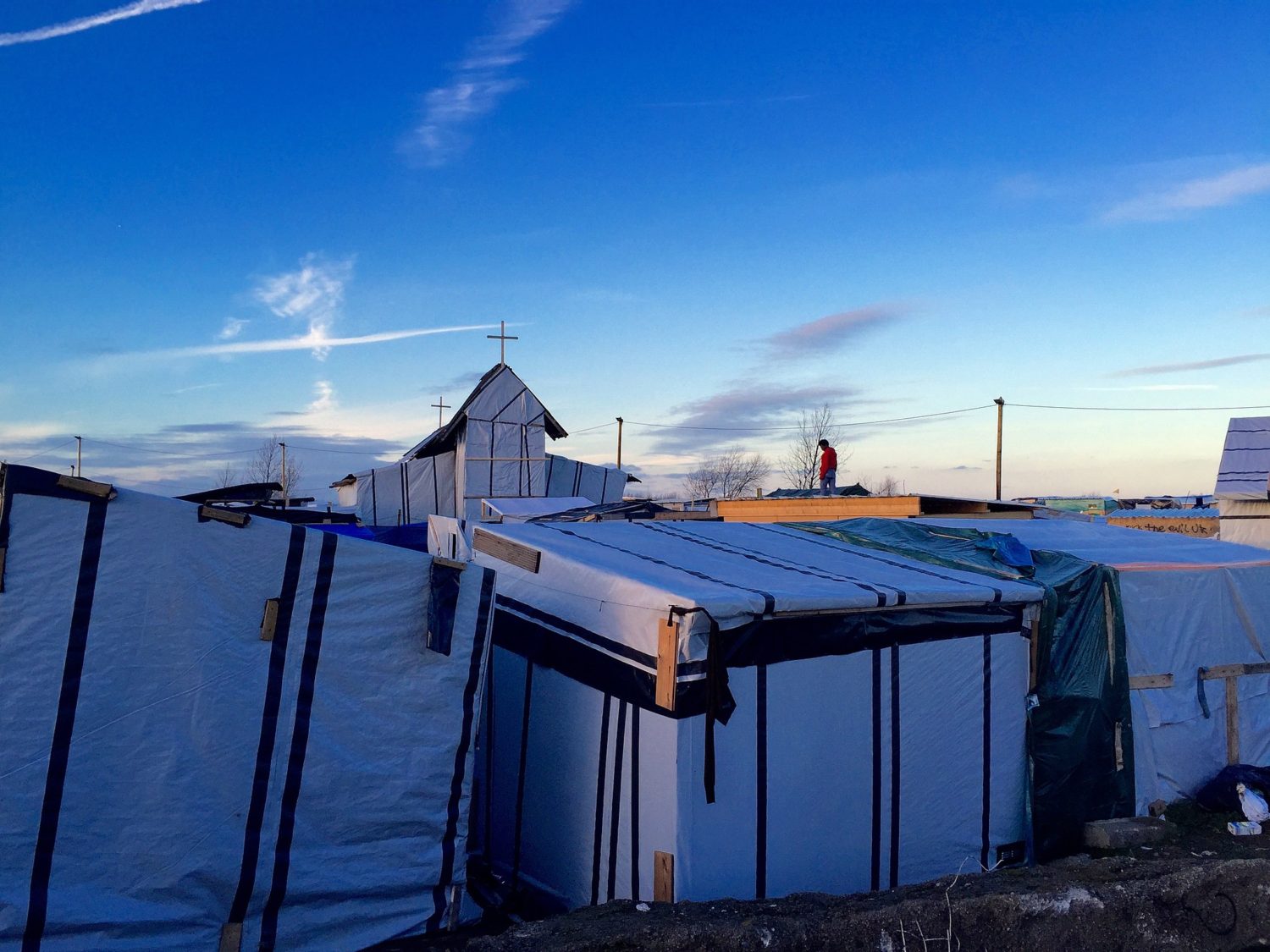Guilty until proven innocent
Policy based on prejudice and insularity harms us all in the long run. Paul Freeman gives the considerations of the South Tyneside Fabians.
There were an estimated 103 million forcibly displaced people worldwide as of mid-2022, including 32.5 million refugees and 5.9 million asylum seekers. Turkey hosts the largest number of refugees at nearly 4 million. 74 per cent are hosted by low to middle income countries, and 72 per cent are hosted in countries neighbouring their country of origin.
The UK gets relatively few asylum applicants and hosts less than 1 per cent of the global total. Yet the current government seems determined to blame those seeking refuge for as many of the UK’s ills as possible, and, in response to their own imagined crisis, has launched a major attack on the right to seek asylum.
Accompanying this attack has been a shift in how we talk about asylum seekers. In particular, the increasingly common usage of the word ‘illegal’ has some current and long-term dangers. This highly emotive description is now commonly used by the government and the mainstream media. Even the BBC, once the bastion of unbiased and well-researched journalism, has resorted to using this terminology when referring to migrants and asylum seekers entering the UK. Where has it come from, and why would claiming asylum ever be considered illegal?
Prior to this year, people seeking refuge in the UK were required to complete an application once they had arrived in the UK. The process would often take many months, and sometimes years. Whilst the status of the applicant was being decided, they were not allowed to work, a predicament weaponised by right-wing pundits to portray asylum seekers as lazy and living off the welfare state, and used as an excuse for discrimination including racial and physical abuse.
The asylum seeker would often be smuggled into the country over land and sea. They would present themselves without passport or identification documents, which is accepted under international law as often unavoidable when someone is fleeing war, chaos or persecution. They would then need to immediately register their application for asylum at the place of entry, usually a police station or the nearest Home Office centre. At this point they would be given temporary leave to remain until their case could be scrutinised by the Home Office. In the meantime, the asylum seekers would be dispersed to accommodation, often in deprived seaside towns. During this period, asylum applicants would be given minimal financial support. If their application for asylum was approved, they would be given permanent leave to stay and supplied with a National Insurance (NI) number, giving them a legal right to join the labour market. The next stage would be to apply for refugee status and finally British citizenship.
This process had many failings, not least of all the morale sapping effect of often long delays in getting a decision from the Home Office. But, crucially, asylum seekers were not identified as illegal by the act of entering the UK without relevant documentation or sponsorship.
This changed with the passage of the Nationality and Borders Act 2022. In practice, it has always been nigh on impossible to claim asylum from outside the UK, and there is no such thing as a visa for claiming asylum. This means that most people have had no choice but to enter the UK without any permission and then subsequently claim asylum. From 28th April 2022 onwards, however, anyone who enters the UK seeking asylum is theoretically at risk of heavy penalisation: the law states that anyone entering the UK illegally could be given a 4-year prison sentence, deportation, or both. People could legally enter the country on a visitors’ visa and then claim asylum, but this would break another law, as it is a criminal offence to use deception to enter the country. As a result, it is almost impossible to enter the UK to claim asylum without breaking the law. Hence the now widely used label: ‘illegal’.
We now have a situation where the longstanding principal of innocence until proven guilty has been reversed: people escaping politically persecution are deemed guilty on entering the UK and must prove their innocence to be considered for the right to remain.
There are specific practical difficulties with the new legislation., too. The Act requires an application for asylum to be made to the nearest Home Office Centre within 14 days of arrival. Applicants often want to take advantage of support from the Refugee Council, Citizens Advice or legal experts who specialise in immigration and asylum law. However, the demand for these organisations is such that it is difficult to complete an application in time.
Lurking in the background is the government’s plan to send asylum seekers to Rwanda. The scheme – upheld by the High Court, but so far only an ambition – would see certain asylum seekers relocated to Rwanda, where they would claim asylum, with no possibility of returning to the UK regardless of the outcome of their application. Legal challenges are being made to fight this legislation. The Law Society says that it is incompatible with international law, damages access to justice. negatively impacts on the role of lawyers in immigration cases, and is incompatible with the Refugee Convention 1951.
They further conclude the UK asylum partnership with Rwanda is not legally binding, has not been properly scrutinised by parliament, and does not protect the rights of asylum seekers.
Really, the recent attacks on asylum seekers represent the government’s attempts to square a particularly unyielding circle: looking tough on immigration is seen as a vote-winner, but the UK economy needs workers from abroad, whether they enter the UK with the intention to claim asylum or not.
The end of freedom of movement and the hostile environment for migrants has led to severe labour shortages in many sectors. The agricultural industry, for one, has insufficient labour to operate, resulting in a loss of harvests. Other employers affected include the NHS, social care providers, construction companies, and hospitality businesses.
So instead of trying to deliver on unworkable promises to reduce immigration to the “tens of thousands”, the government decided to refocus the narrative on small boat crossings, and then crack down on them – in the process making seeking asylum illegal for most displaced people worldwide.
Nominally, the government’s argument in favour of the new act is to stop human trafficking. It would be a noble aim: people smugglers charge migrants huge sums of money to be transported unsafely across land and sea only to reach a false promised land. The government, however, concentrates on persecuting the victims, not the criminals causing the situation. And the very same government has yet to establish safe routes for families needing to escape the dangers of war, terrorism, and tyranny. Unless, of course, the people involved can be used to improve the government’s popularity, as Ukrainian refugees and popular athletes can.
Judged on its own cynical terms, the government’s plan to reshape the narrative has worked: nearly all the current anti-immigration aggression is centred on people crossing the Channel from France. This is despite the fact that, while 45,000 people (the number who successfully crossed the Channel in 2022) sounds like a lot, it represents just 0.067% of the UK population.
The current government is using a small number of desperate people to hide its incompetence and dishonesty. It seems determined to pacify its most right wing members, and sees hardline policies as a vote-winner. But with the current lack of workforce numbers and ageing population, this country needs more people to fill the vacancies and stimulate the economy.
There is a third choice. Instead of crippling the economy with restrictive immigration laws, or sacrificing refugees at the altar of bigotry, the left – and the Labour party – must make the case for grounding our immigration and asylum policies in humanitarianism, respect, and sensible economics. It is not something we have always excelled at in the past: the current government’s anti-refugee narrative is more or less a pastiche of Tony Blair’s campaign against asylum seekers in the early 2000s.
Specifically, current and future governments of the UK need to:
- Recognise and accept their responsibility to those seeking asylum and sanctuary.
- Stop trying to get out of the international agreements that protect the people and benefit the country.
- Put in place safe routes for immigrants to use, followed by a simple and workable system to rapidly process applicants, with a quick appeals process.
- Use the current international law enforcement agreements to stop people smugglers instead of criminalising the victims.
- Give new arrivals time and support to learn English and learn about British culture and laws.
- Enable them to work while their future is being decided.
- Settle and disperse the incomers without the use of contentious and dehumanising places and methods.
The cost of failure could be severe. History has shown on many occasions the devastating outcomes that result from politicians and leaders manipulating public opinion to dehumanise groups of people. We can only hope that a Labour government will do better.
Image credit: Liam-stoopdice, CC BY-SA 4.0 via Wikimedia Commons

